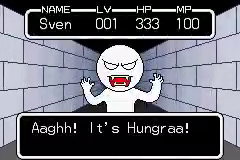EDIT: Thank you all so much for your thoughtful input. It means so much to me.
Hi, all. I’m looking to change my nasty tendency to be a sore loser, particularly when playing games. I tend to personalize losses that are of no consequence. When the game starts to shift against me, I often stop trying as hard because it feels hopeless. My partner is much more proficient at board games than I am, and I don’t want this toxic trait of mine to make games less fun for us. What are some things you all tried to lessen this train of thought, if you’ve experienced it?
I keep in mind that my happiness depends on everybody else’s happiness. I try to see the fun in things when I have to play the part of the loser.
For fun, I recommend challenging your partner to a “most talented loser” set of games. Set up rules (like, you can’t just immediately tank and end the game) and play like you make the worst decision each opportunity. If you have choices between smart moves and really dumb moves, choose the dumb ones. That way, one of you ends up accidentally winning.
As a kid, my brother had really awful sportsmanship but whenever we played to lose, it was far more fun and silly
Git good, don’t loose /s
git push origin main
Error: you have unresolved conflicts
This is why I use text editors(like kate, vscodium) to manage my git stuff 😂
I use meld lol
Ask yourself what winning the game gains for you and what losing costs you. Then ask yourself what behaving like an ass when you win or lose might gain you or cost you. No one will remember you won that particular game in a month except maybe you. It is not going to be something that other people findly remember about you when you aren’t around. However if you act like a ass, they definitely will remember and what you will gain if you repeatedly behave like that is a reputation, and not a good one. Nobody else really cares if you win or lose. It says literally nothing useful about you in day to day life.
What do you prefer to win, a board game or a lasting relationship.
Now that’s said, when you are in the midst of losing and you can feel the tension. Remind yourself what is really at stake as above.
If you start losing and winning graciously you will hopefully come to realise the above naturally.
I looked at losses as an opportunity to improve. I’ll review the game, find my mistakes, and learn how to avoid them in the future. So when I lost at Crazy 8s I’d study. Just joking! I honestly don’t care about Crazy 8s that much to study my losses. What am I trying to go pro??
I eventually realized that this applied to every game. I’m not going to be a pro chess player. I’m not going to be a pro bowler. I don’t care that much to put the time and effort into studying and training the intricacies of Counter Strike. I’m just trying to have fun! That’s when losing stopped bothering me so much.
Two approaches. Mixed success with both.
-
Choose games that don’t make you feel bad. This can mean playing more cooperative games, or it can mean offering to referee or sit out games you know will just piss you off. For me, the chance of winning isn’t appealing enough to outweigh the chance of ruining the game for someone else. It helps to identify what exactly it is about losing that makes you so sour. I have a hard time with games like Cards Against Humanity because the card combinations that are funny to me usually aren’t funny to anyone else because they didn’t go on the ADHD field trip with to make those connections. It starts to feel like a popularity contest that I’m losing because my brain is wired wrong, and it’s hard not to take that personally.
-
Set different goals in the games you’re playing, and define ‘winning’ for yourself based on those goals. I used to get annoyed every time my friends pulled out settlers of Catan. I would do what made sense to me each turn, but I’d always lose anyway either to random chance or just not having enough RAM in my brain. Even on the rare occasions I won I often wouldn’t have fun with it because I spent so much of the game being frustrated. So I decided the only thing I cared about in the game was getting one of the bonus goals, usually ‘longest road’. That was much easier to focus on, and it took all the pressure off me to win. After a while it became kind of a running joke.
It’s not perfect, and it doesn’t happen in a vacuum either. Sore losers often have anger issues they’re not dealing with (I know I did!) and figuring that stuff out will help in more areas of your life than just board games.
Your mileage may vary.
Good luck!
-
Two approaches. Mixed success with both.
-
Choose games that don’t make you feel bad. This can mean playing more cooperative games, or it can mean offering to referee or sit out games you know will just piss you off. For me, the chance of winning isn’t appealing enough to outweigh the chance of ruining the game for someone else. It helps to identify what exactly it is about losing that makes you so sour. I have a hard time with games like Cards Against Humanity because the card combinations that are funny to me usually aren’t funny to anyone else because they didn’t go on the ADHD field trip with me to make those connections. It starts to feel like a popularity contest that I’m losing because my brain is wired wrong, and it’s hard not to take that personally.
-
Set different goals in the games you’re playing, and define ‘winning’ for yourself based on those goals. I used to get annoyed every time my friends pulled out settlers of Catan. I would do what made sense to me each turn, but I’d always lose anyway either to random chance or just not having enough RAM in my brain. Even on the rare occasions I won I often wouldn’t have fun with it because I spent so much of the game being frustrated. So I decided the only thing I cared about in the game was getting one of the bonus goals, usually ‘longest road’. That was much easier to focus on, and it took all the pressure off me to win. After a while it became kind of a running joke.
It’s not perfect, and it doesn’t happen in a vacuum either. Sore losers often have anger issues they’re not dealing with (I know I did!) and figuring that stuff out will help in more areas of your life than just board games.
Your mileage may vary.
Good luck!
-
Probably not the answer you’re looking for, but weed. I hate losing at anything, and that compounds heavily in matter that I care about. I’ve completely cut NFL from my life starting last year because that’s the only way that I found to not feel like shit after a loss. Not only did it ruin a day or two for me, I was a twat. Prior to weed, I was overtly aggressive. Not to others but my language and inanimate objects. Weed chilled those tendencies, but it didn’t fix post game losses. I’ve had to do a lot of deliberate mental work to stop caring. I think I was raised to be competitive, so breaking those traits has taken years.
No good advice, but I want to say kudos to you for seeking self improvement!
Honestly, a massive one for me is not letting myself get angry at a game I can’t hope to understand or master at a highly competitive level. I do a lot better at recognizing these days when I am intellectually or physically incapable of getting better quickly at a game - my mind shifts these activities outside of a competitive mindset and more to a leisure mindset.
When I’m not trying to actively compete against others to a point of pride, suddenly I’m a lot more receptive to incremental growth at my own pace
Reframe your goals. Is the game about winning or is it about having fun with your friends? Almost always the real goal is the latter, but our lizard brains don’t always realize this. Sometimes this may mean you choose to play differently because your goal is to maximize fun rather than win rate. And that way if you do lose you don’t feel bad because you still had a good time.
Enjoy the story unfolding from playing the game rather than winning
I just lost the game. And now you have.
I mostly just switched away from competitive games (as in, games where you’re playing against other players). It is supposed to be a leisure activity, after all. I found I felt bad if I won (because I made my opponent feel bad) and felt bad if I lost.
There’s also the idea that the best board game experience is where all players had a good time. Paying attention to other players’ needs might help reduce your own attention to your investment in the game.
My MIL. She would eat that shit up and make it 10x worse if she noticed Id be a sore loser. They were the only people we would play games with, my parents hate them. I love them, so I had to learn how to deal with it.
First I had to just keep it inside. Then I found out, I don’t actually care that much. As long as my partner loses as well though.
She’d make remarks, asking if I wanted to talk about how I lost, with a pity voice. Stuff like that.







